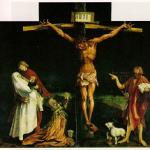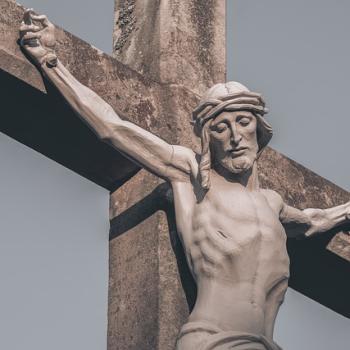He gives no details of the man, nor does he name him. Instead John once again uses this person to represent Adam or Everyman. And in John's overall metaphor, "sight" always denotes "inner sight." The account simply relates that Jesus applied the crude, elemental substance of mud to the man's eyes enabling him to "see." The lesson John is teaching is that when the man regained his sight, he could then realize a truth different from that which he had been taught since birth. He could "see" the reality of the Christ (p. 186).
Second, we need not fear receiving a person's awakening as a genuine experience of God. This was where the blind man's community failed, driving him out when he refused to diminish what had happened. The reflex to self-protect my/our way of understanding can lead to shutting down another's in-breaking experience of God, which typically appears messy and unconventional. As messy and unconventional as spitting onto earth to make mud and smear it on eyes!
There is an uncomfortable messiness in un-seeing what we've always seen and un-knowing what we think we know that is a precondition for ‘seeing' God-at-work among us afresh. There is so much more to the desires of God's heart than we can fathom. But how loath we are to let go of our carefully crafted and hard-won categories of understanding! We live uncomfortably with the truth that it is in losing our old ways of seeing that we are given new eyes: "I came into this world for judgment so that those who do not see may see, and those who do see may become blind" (Jn. 9:39).
Admitting our blindness opens us to the revealing work of Spirit. The only thing that limits the work of God in us is our refusal to allow our own unfinishedness: "If you were blind, you would not have sin. But now that you say, ‘We see,' your sin remains" (Jn. 9:41). For now -- until we, too, choose to let down and join the joyful human ‘party' our God delights in throwing with every return.
For your reflection and conversation:
In our community this year, how have I/we protected against receiving another's experience of God, and what has been the effect of that refusal?
What specifically are some ways I recognize and admit I/we are unfinished or incomplete in my/our understanding?
Read all the articles in this series:
Sandra Lommasson is the founder and co-executive director of Bread of Life, a spiritual formation center in Sacramento, CA, and a spiritual director. Her passion is creating processes and pathways for the formation of spiritual directors and leaders of religious or public organizations. She is a published author in the field of spiritual formation and served on the Council of Spiritual Directors International from 1999-2005.




